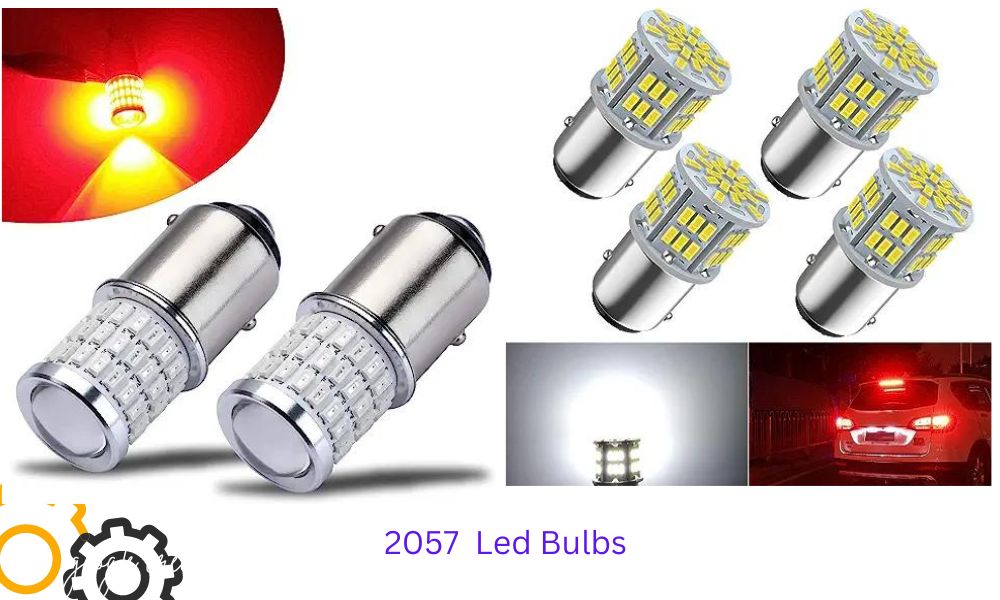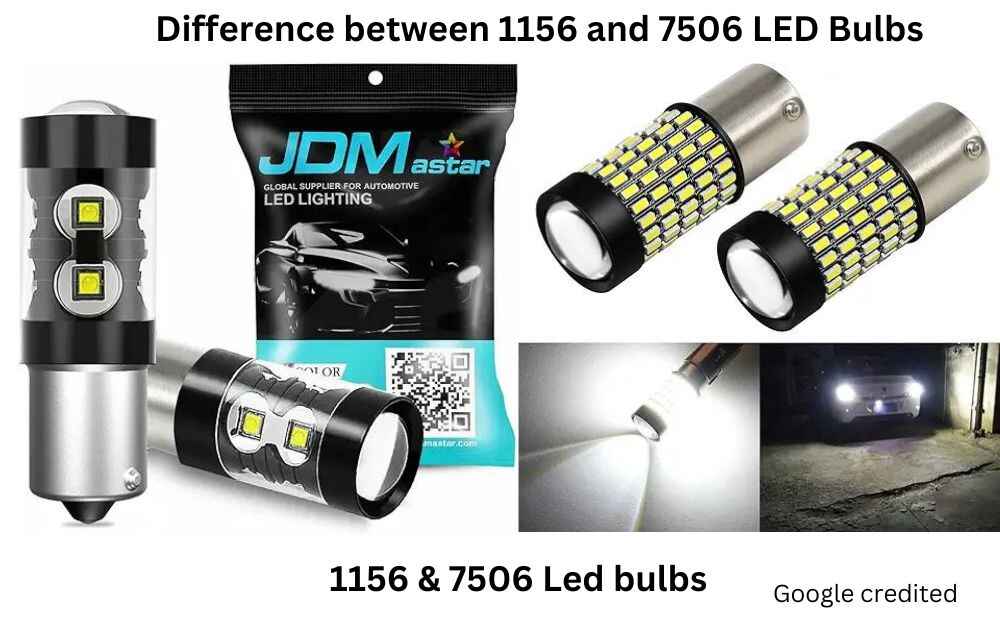If you’re replacing the light bulbs in your car or motorcycle, you’ve probably come across the 1157 and 2057 bulbs. These bulbs are commonly used in turn signals, tail lights, and brake lights, and while they look similar, there are differences between the 1157 and 2057 bulb that could affect performance. Knowing the distinctions between the 1157 and 2057 can help you select the best option for your vehicle.

What Are 1157 and 2057 Bulbs?
Both the 1157 and 2057 bulbs are dual-filament incandescent bulbs. This design allows them to be used in brake and running lights and makes them somewhat interchangeable because they both fit into the BAY15d socket. However, understanding what each bulb offers can help you decide between them for specific needs.
1. 1157 Bulb Overview
The 1157 bulb is popular for vehicle lighting and is often found in classic cars, motorcycles, and trailers. Known for its bright brake light, the 1157 bulb operates at:
- Brake/turn signal filament: 12.8 volts
- Tail/running light filament: 14 volts
- This higher wattage gives the 1157 a brighter output for the running light mode, making it an ideal choice for drivers who prioritize visibility.
2. 2057 Bulb Overview
The 2057 bulb is similar in design and fits the same BAY15d socket. However, the 2057 bulb is engineered to be more energy-efficient, which can help extend its lifespan. The 2057 light bulb operates at:
- Brake/turn signal filament: 12.8 volts
- Tail/running light filament: 14 volts
Key Differences Between 1157 and 2057 Bulbs
While both bulbs may look alike, there are some key distinctions to consider when comparing the 2057 vs. 1157 bulb:
1. Wattage and Brightness
- 1157 bulb wattage: Brake/turn signal filament is 27 watts; tail/running light filament is 8.3 watts.
- 2057 bulb wattage: Brake/turn signal filament is 26.9 watts; tail/running light filament is 6.7 watts.
The 1157 bulb typically provides a slightly higher brightness in the running light mode, making it more suitable for those seeking higher visibility.
2. Heat Emission
Due to its higher wattage, the 1157 bulb emits more heat, which can be a consideration if your light housings are sensitive to heat. The 2057 bulb produces less heat, which may help prevent potential damage to heat-sensitive light housings.
3. Longevity
The 2057 bulb often has a longer lifespan than the 1157 due to its lower wattage. If minimizing maintenance is a priority, the 2057 bulb may be the better choice.
4. Energy Efficiency
In terms of energy usage, the 2057 LED bulb is more efficient. The 2057 bulb LED replacement option further enhances energy savings, especially if you have multiple lights or electrical accessories in your vehicle.
Applications and Compatibility
Both the 1157 vs 2057 bulb options are versatile, and knowing their applications can help you make an informed decision.
- 1157 bulb fits what cars? Classic cars, motorcycles, and trailers frequently use the 1157 due to its brightness.
- 2057 bulb fits what cars? Many modern vehicles prioritize the 2057 bulb for its energy efficiency and longevity.

Are 1157 and 2057 Bulbs Interchangeable?
The question, “Are 1157 and 2057 bulbs the same?” is frequently asked. Although they fit into the same BAY15d socket and have some similarities, they are not precisely the same. In case you’re wondering, “Is 1857 and 2057 the same?” the answer is no—they differ in wattage, brightness, and longevity, which can impact the light output and energy use in specific vehicles.
Other Related Bulbs
For those comparing bulb options, other notable comparisons include:
- 1156 and 1157 bulb difference: The 1156 bulb has a single filament, while the 1157 has dual filaments.
- 1157 vs 2357 bulb: The 2357 bulb offers even brighter light than the 1157 for braking applications.
- 3157 vs 1157 bulb: The 3157 is typically an LED and provides even longer life and better efficiency.
Choosing the Right Bulb for Your Vehicle
When selecting between the 1157 and 2057 bulb options, consider these factors:
1. Vehicle Specifications
Refer to your vehicle’s manual for recommended bulb types. This will ensure safety and optimal performance. If your vehicle’s manual suggests one over the other, it’s best to follow that advice.
2. Desired Performance
If brightness is a priority, the 1157 vs 2057 light bulb comparison points to the 1157. On the other hand, if you want longer-lasting, energy-efficient lighting, the 2057 bulb LED replacement is a solid choice.
3. Driving Environment
A brighter 1157 bulb may be beneficial if you often drive in low-light conditions. For city or daytime driving, the 2057 bulb could be sufficient and more energy-efficient.
Installation Tips
The following advice will help to guarantee a good installation:
- Safety first: Turn off your vehicle and let the lights cool.
- Handle with care: Wear gloves or use a clean cloth to handle the bulbs; oils from your hands can shorten the bulb’s lifespan.
- Secure fit: Ensure the bulb is securely in the 2057 socket or 1157 socket to prevent flickering.
Test your lights: Once installed, check that both the bright and dim modes work properly.
Conclusion
Understanding the difference between the 1157 and 2057 bulbs can help you make the right choice for your car’s lighting needs. The 1157 bulb offers higher brightness, ideal for those needing more visibility, while the 2057 bulb provides energy efficiency and longevity, which could reduce maintenance frequency. By considering your vehicle’s specifications and your driving needs, you can make an informed choice to improve your vehicle’s lighting performance and ensure safer driving.
Hi, I’m Malik Suhail—an SEO expert, web designer, and passionate blogger with 2 years of experience. I specialize in crafting content that is not only informative but also tailored to meet the needs of my readers.
I write about diverse topics, always striving to simplify complex ideas and provide valuable insights that resonate with my audience. Whether it’s about SEO strategies, web design trends, or blogging tips, I am committed to delivering well-researched, practical, and easy-to-understand information.
My mission is to help readers navigate the digital world with confidence and clarity. I believe in adding value through authentic content that inspires action and delivers results.


